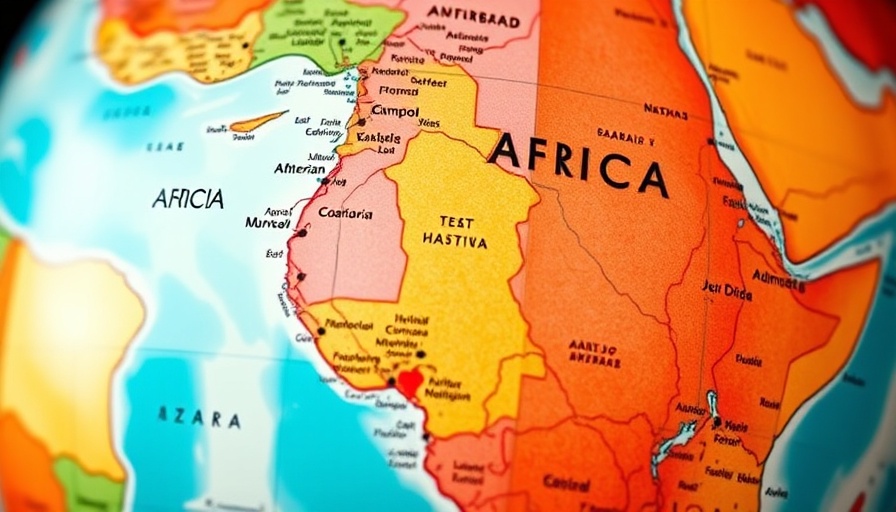
Africa and the GCC: A Shared Future
The recent economic renaissance among nations in the Global South presents an unprecedented opportunity for collaboration between Africa and the Gulf Cooperation Council (GCC). With Africa's expanding influence in the global economy and the GCC's ambition to diversify its economic landscape, a significant transformation is underway. Collectively, these regions can capitalize on shared interests in securing supply chains and investing in sustainable development as they enter what may be termed a new era of economic interdependence.
Historical Context: The Birth of an Economic Partnership
The GCC, comprising Saudi Arabia, Kuwait, the United Arab Emirates (UAE), Qatar, Bahrain, and Oman, was formed in 1981 to foster economic cooperation based on shared cultural and political identities. Since then, it has evolved as a significant player on the global stage, investing heavily in various sectors, including infrastructure and renewable energy. Over the last decade, the combined investments from GCC nations to Africa have surpassed $100 billion. This trend signifies the GCC's strategic shift towards building stronger economic ties with Africa in a bid to mitigate overreliance on oil exports.
Emerging Sectors and Opportunities
Africa is home to a vast array of resources that can meet the growing demands of GCC nations looking for sustainable alternatives to oil. Sectors like telecommunications, agriculture technology (Agri-tech), and energy (particularly renewables) are flourishing across the continent, thereby enticing GCC investors. Initiatives such as the Africa Continental Free Trade Area (AfCFTA), which aims to enhance intra-African trade and provide a unified market for businesses, further bolster this economic linkage. According to reports, GCC companies embarked on 73 foreign direct investment (FDI) projects in Africa worth over $53 billion in 2023 alone, showcasing an immense potential yet to be fully unlocked.
Counterarguments and Diverse Perspectives: Not All Smooth Sailing
While the prospects for collaboration are promising, notable challenges persist. Critics argue that the dependency on foreign investments might undermine local development and exacerbate inequalities. Moreover, the Gulf countries' rapid attempts to exert influence could clash with the interests of existing regional powers, leading to geopolitical tensions. The successful navigation of existing power dynamics will be crucial for a fruitful partnership.
Future Predictions: What Lies Ahead for Africa and the GCC?
As both regions continue to chart their own course in a dynamic global environment, their partnership's evolution will likely thrive. The GCC’s investments in Africa could position it as a significant player in geopolitical negotiations, especially as Western influences wane. Moreover, as Africa’s consumer market continues to grow—projected to reach $6.7 trillion in GDP by 2030—GCC nations stand to benefit from increased access to a burgeoning middle class.
Actionable Insights: What Companies Should Consider
For import-export companies operating within this context, embracing the diversification strategies of both Africa and the GCC could be key to success. Companies should consider aligning their business models with regional priorities such as sustainable development and infrastructure projects. Engaging with local partners can enhance credibility and facilitate smoother operations.
Conclusion: The Importance of Strategic Partnership
The economic renaissance of the Global South presents a pivotal moment for Africa and the GCC. As both regions work toward mutual growth, stakeholders in the import-export space must remain informed and adaptable. Recognizing the strengths and challenges of this partnership could yield substantial opportunities for businesses willing to innovate and collaborate.
For import-export companies looking to leverage this new wave of opportunity, now is the time to engage strategically. Explore partnerships and investment opportunities within this collaborative landscape to make the most of the evolving economic dynamics.
 Add Row
Add Row  Add
Add 




Write A Comment